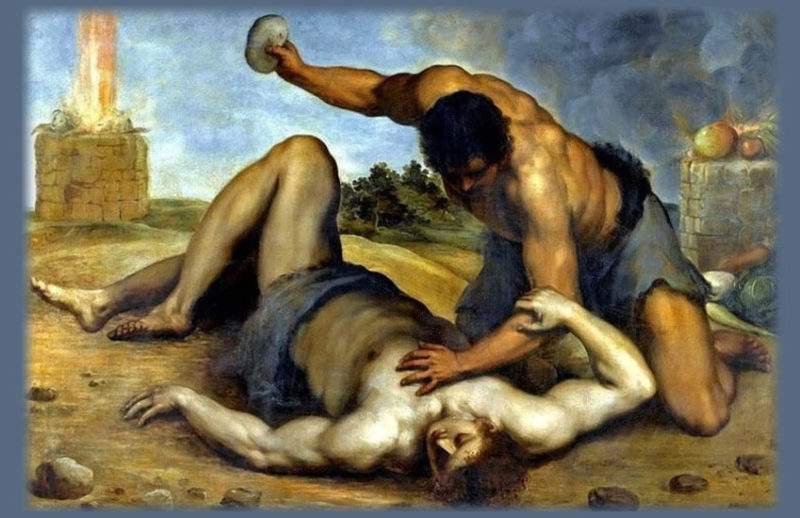Catholic Apologetics #52
Saint Thomas Aquinas identifies six situations that disrupt peace. When we see any of these, then that is where we are called to be peacemakers (if able to do so). This is particularly timely during an increased time of global conflict.
Discord: As a mortal sin against charity, discord is “knowingly and intentionally dissenting from the Divine good and [our] neighbor’s good, to which [we] ought to consent.”
Contention: In and of itself, contention is considered sharp speech. This is not always a sin, as in the instances where the Church Fathers (like St. Jerome) wrote very sharp apologies in defense of the Catholic Faith. Contention becomes gravely sinful when the person speaking intends to cause trouble for its own sake or to deliberately upset another person. Most grievous is the contention that results from false beliefs. To speak harshly on behalf of something contrary to the Truth is a mortal sin.
Schism: Schism tears apart unity. It rejects the charity that is the foundation of unity.[1] Those who intentionally separate themselves from the unity of the Church are called schismatics. Schism from the unity of the Church puts the schismatic’s soul in danger of perdition, because he or she is leaving the deposit of true Faith and the right order of hierarchy as established by Jesus Christ through the Holy Ghost.
So, for example, the Eastern Orthodox are objectively in schism because they do not recognize the authority of the Pope, whereas there are Eastern Catholics in union with Rome who assist at the Divine Liturgy according to Eastern Rites, but are obviously not in schism.
In contrast, unfortunately many Catholics today are taught to attack other Catholics who wish to hold fast to the Traditional Latin Mass and Traditional Theology and call them schismatics. Such a label is utterly false. To hold fast to the True Faith is not schismatic! Those who, on the contrary, attack the Faith – even when encouraged to do so by priests and other clergymen – themselves manifest the schismatic mentality.
War: Not all war is sinful. In theory, there is what the Church calls a Just War. There are several conditions for a Just War, which include: the consent of the legitimate sovereign authority that has the rightful power to call a war, a just cause for declaring war (e,g., the defense of the State), a just intention for the war, a respect for innocent non-combatants and for the Church, and due and proportionate means used to carry out the war.[2] A Just War always aims for peace and peace only. If any of these conditions are lacking, the war is a sin. The Church recognizes the acceptability of a Just War, when the necessary conditions are met.
Strife: Strife contains the elements of contention – that is, harsh speech – but goes beyond the speech into the inclination towards violence. The violence can be physical or verbal. A person who causes strife is prepared for a violent confrontation and even enjoys provoking others to strife. This person is comfortable with the cycle of violent confrontation and makes it their primary approach within discussions.
Sedition: Sedition is the temporal breach in unity between a people. Sedition is considered traitorous because it generally involves a rebellion against the proper authority. For example, members of secret societies, freemasons, and communists who incited revolution all over the world throughout the 19th and 20th centuries were repeatedly condemned by episcopal and papal authorities as seditious. Just like with schism, sedition is a sin against charity, making it always a mortal sin.
Conclusion
Considering the seriousness of these six enemies of peace, we must avoid at all cost those that concern individuals. In the event that any of these situations are imminent or are already occurring – especially regarding those around us – then it is our duty as Catholics to do all within our power to prevent them from occurring or otherwise to bring such acts to an end.
[1] Usually schism is when a person refuses to acknowledge the legitimate authority of his superior. An act of disobedience to legitimate authority is always a sin — but it is not always an act of schism. Disobedience becomes an act of schism when the subject does not recognize his superior’s right to command – not simply in a particular command, but even that the superior has rightful authority at all.
[2] Additional conditions for a Just War include: It must be an act of legitimate self-defense, done as the absolute last resort (after serious attempts of diplomacy); and there must be a good chance of success, an assured better result than the present condition, moral certainty that the State’s essential rights are in danger, and no actions of the war being intrinsically evil.




